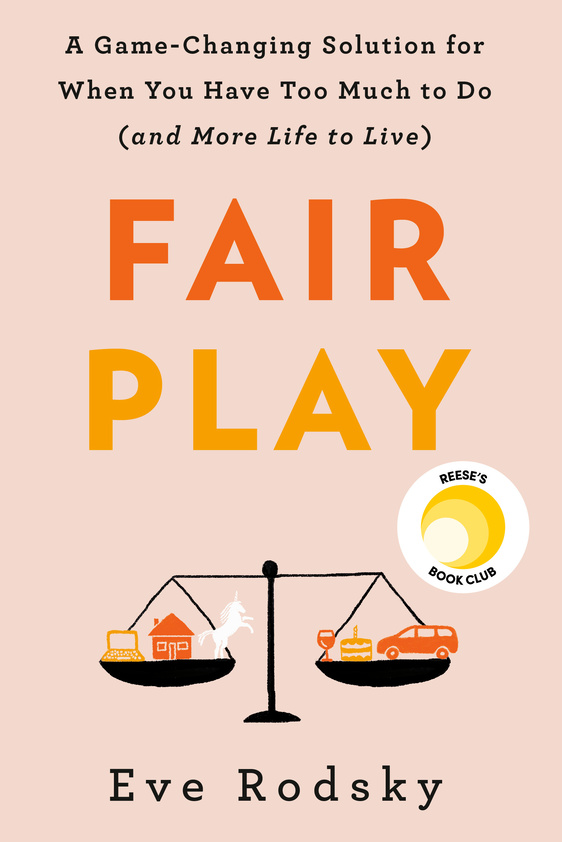After having children, many of us feel that we’re no longer seen, or no longer see ourselves, for the vibrant individuals we are. Instead, we take on the corresponding identity for the various roles we now play: Spouse. Caretaker. Parent. House- hold Manager. List Maker. In my own mom circle, many of my friends no longer refer to themselves by their first names. With no apparent irony, they post as #braydensmom, #sawyersmom, #hazelsmom. Some even sign off email correspondence this way. According to the 2018 State of Motherhood survey by Motherly, 59 percent of moms report being “most strongly” defined by motherhood. I get it. I’m so proud of the time I’ve been able to care for and get to know my children, but outside of school, playdates, and kids’ birthday celebrations, can’t my nonwork identity include something of what made me a good friend, a fun dinner companion, a talented (fill in the blank)? Consider what you were once known for among friends and loved ones, and how often do you identify yourself with that special something now?
Being a mom is amazing, important, and—for women who choose it—can feel existentially important. But lest you’ve forgotten, you were someone else before you became a parent, and you remain more than #sawyersmom today. Losing sight of this comes at a price, described by countless women interviewed by sociologist Orna Donath in her dramatically titled Regretting Motherhood. In conversation, Donath and I discussed her interview subjects, many who express loving their children no less, yet also describe not “realizing myself” anymore, “fading away,” and “disappearing.”
Many of my interviews with mothers mirrored these sentiments. Emma told me candidly, “Being a mom feels necessary, but not sufficient for me.” Another confided, “Once I was done having kids, I thought: Who am I? I’d gained a family but lost myself.” My friend Aspen said, “After kids, I needed to reexamine and find who I was again, and it was hard because even though I’d been on this earth for 30 years, I felt like I was starting over.”
And yet, once we pass the milestones of completing school, getting married, and having kids, carving out time for Unicorn Space pass ons may be more important than ever in order to create new milestones that allow each of us to recognize and celebrate personal achievement.
And don’t we all need that every now and again?
Tovah Klein, PhD, director of Barnard College Center for Toddler Development and an associate professor of psychology, cautions, “Don’t let your passion be the perfection of your children. Because when you solely define yourself in relation to another, it’s not enough.”
Not enough for you, or for your kids, it turns out. New re- search shows that women who spend time on themselves have a greater capacity to care for their children. Still, expanding our roles beyond the home can feel intimidating. Many women I spoke to said they’d identified as “mom” for so long that they felt unsure they could fill any other role. “I’m not quite sure if I am someone else outside of being a parent,” reflected Giselle. And without being able to identify what they might do with time set aside for Unicorn Space, many women expressed reluctance to relinquish even some control of the household to their partner, out of fear that they wouldn’t be able to replace the success they enjoy in man- aging their family’s domestic sphere. A woman at my kids’ school confided, “I’m thinking of having a third child now that my two others are in school. Filling the day scares me. I worry it’s too late to think about doing, or being, anything else. I wouldn’t know where to begin.”
Another friend in the schoolyard added, “It’s physics. Bodies in motion stay in motion. And I am not in motion. I am an object at rest.” She went on to say, “Once you lose your confidence in your abilities outside your role as a mom, it’s hard to get the old magic back.”

From FAIR PLAY: A Game Changing Solution for When You Have Too Much to Do (and More Life to Live) by Eve Rodsky, published by G.P. Putnam, an imprint of the Penguin Publishing Group, a division of Penguin Random House, LLC. Copyright © 2019 by Unicorn Space LLC.
Follow us here and subscribe here for all the latest news on how you can keep Thriving.
Stay up to date or catch-up on all our podcasts with Arianna Huffington here.


